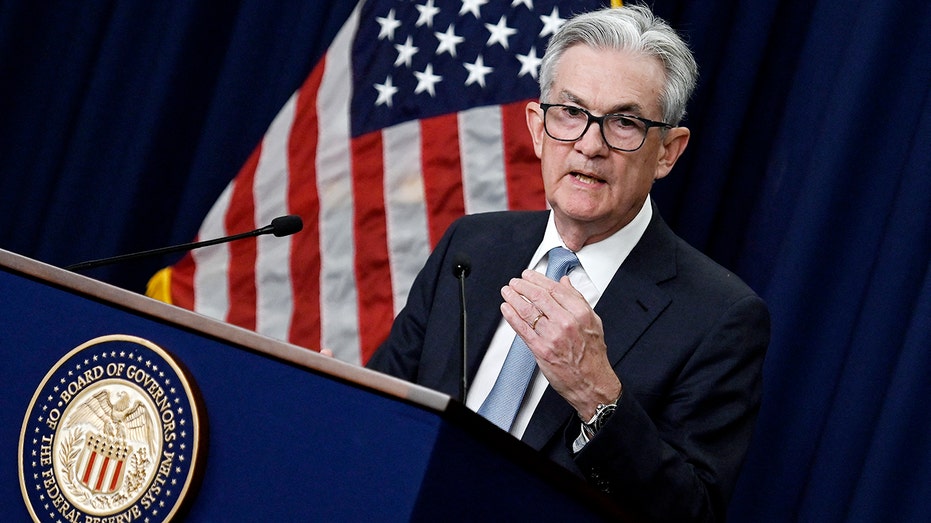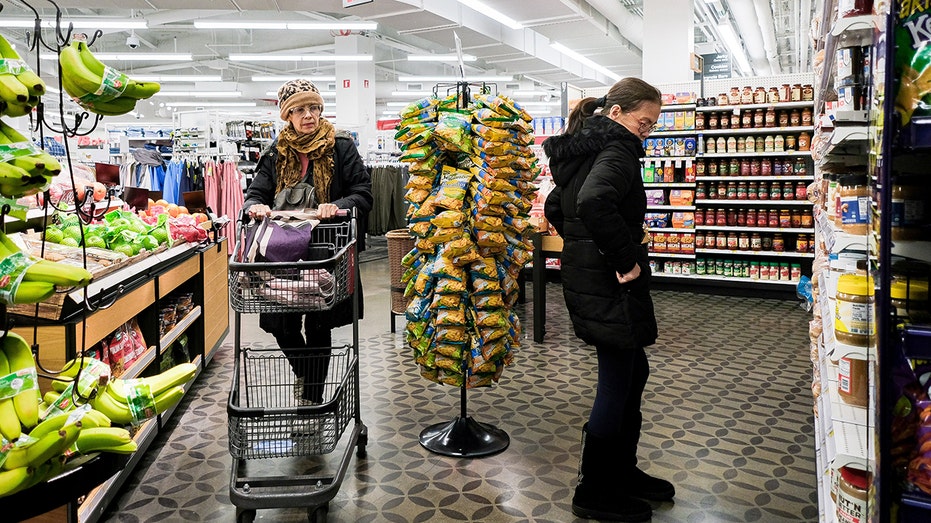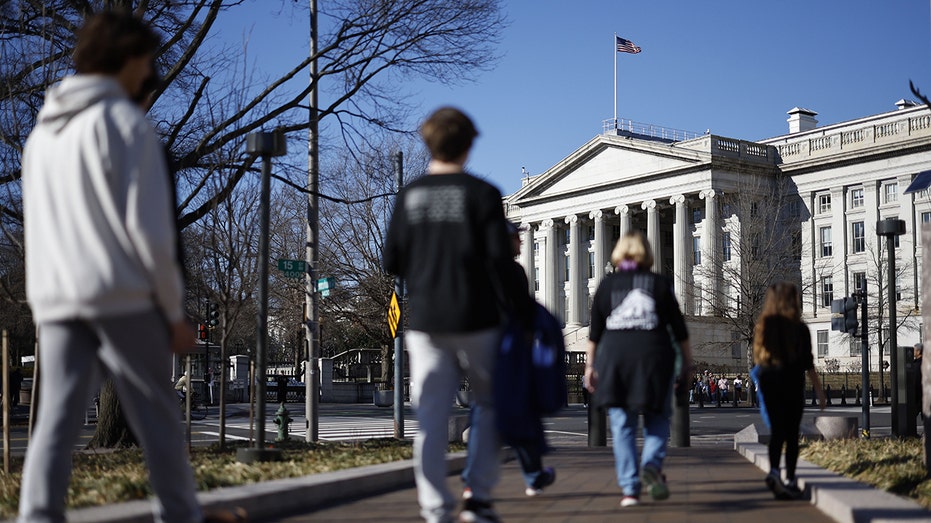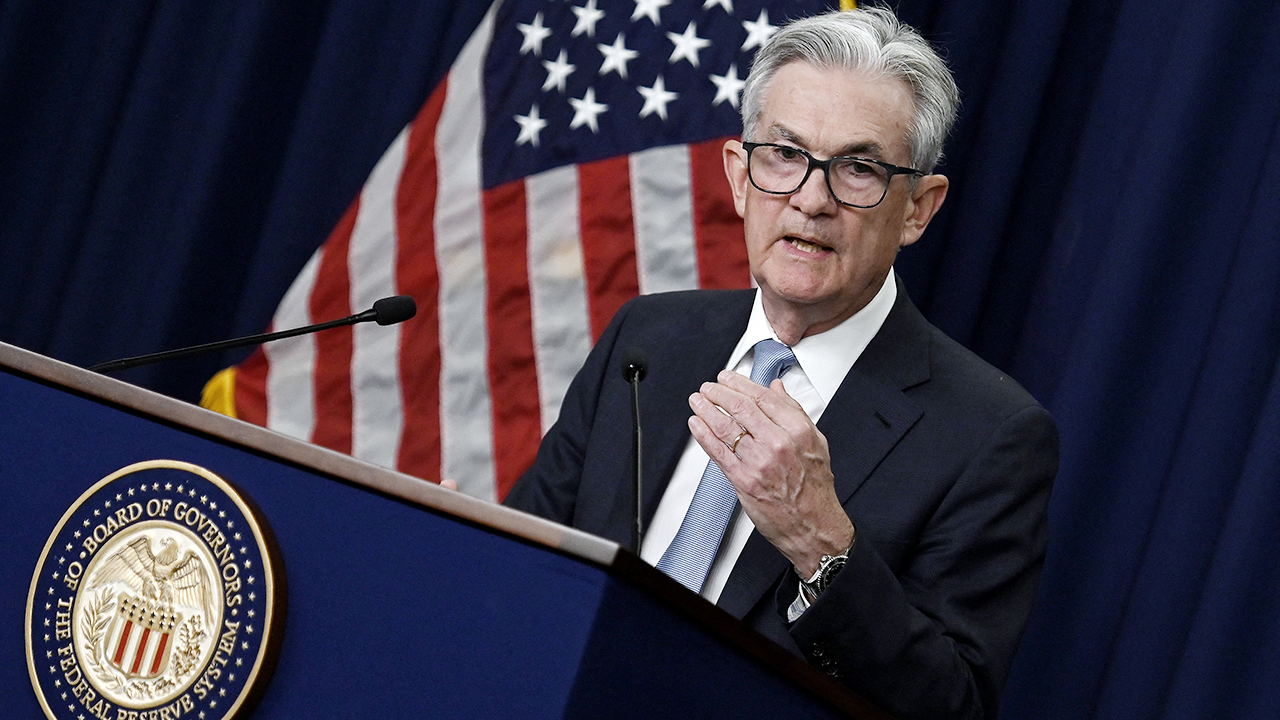Fed set to slow interest rate hikes again as inflation cools
Federal Reserve to continue inflation fight with 25-basis-point interest rate hike
Kenny Polcari: Federal Reserve won't blink or pause until May
Slatestone Wealth chief market strategist Kenny Polcari encourages investors to look toward other sectors on 'Making Money.'
The Federal Reserve is set to downshift its pace of interest rate increases again at its first meeting of the year this week amid growing signs that stubbornly high inflation is finally starting to cool.
The U.S. central bank is widely expected to lift the federal funds rate by 25 basis points at the conclusion of its two-day meeting on Wednesday – slowing the size of the increase for the second straight meeting.
The move would set the federal funds rate between 4.5% to 4.75%, further restricting economic activity as the borrowing costs for homes, cars and other items march higher. It would mark the highest rate level since 2007.
Fed Chairman Jerome Powell confirmed in December that smaller rate hikes are on the table this year amid signs that the central bank's aggressive tightening campaign is slowing the economy and bringing inflation under control. However, he said policymakers have more work to do on the inflation front before pausing and that rates may need to stay elevated for "some time."
US FACES INCREASED STAGFLATION THREAT IN 2023 AFTER WAVE OF GOVERNMENT SPENDING

Federal Reserve Chair Jerome Powell speaks during a news conference on interest rates, the economy and monetary policy actions, at the Federal Reserve Building in Washington, D.C., on June 15, 2022. (Photo by OLIVIER DOULIERY/AFP via Getty Images / Getty Images)
"Our focus right now is really on moving our policy stance to one that is restrictive enough to ensure a return of inflation to our 2% goal over time," Powell told reporters. "It’s not on rate cuts. And we think that we’ll have to maintain a restrictive stance of policy for some time."
Policymakers projected a peak rate of 5% in December,
But Wall Street is even more laser-focused on Powell's press conference at 2:30 p.m. ET for additional clues about what comes next in the Fed's inflation fight – including how much higher officials plan to raise rates, and what they need to see before stopping the increases.
Should policymakers signal that they expect rates to remain high through 2023 and into next year, it could deliver a hawkish shock to the markets, which are currently betting that rates will be cut in the second half of the year. Investors could wind up sorely disappointed: Although recent data showed that the consumer price index rose actually decline 0.1% in December, headline inflation remains about three times above its pre-pandemic average and far higher than the Fed's 2% target.

Customers shop at a store in Queens, New York, the United States, on Jan. 12, 2023. ((Photo by Ziyu Julian Zhu/Xinhua via Getty Images) / Getty Images)
DEMOCRATS SLAM 'DANGEROUS' FED RATE HIKES, WARNING OF WIDESPREAD JOB LOSSES
"Chair Powell has said that the committee would not consider cutting rates until they are confident that inflation is moving down to 2% in a sustained way," said Jeffrey Roach, the chief economist at LPL Financial. "The markets expect the Fed to cut rates as early as July. Who is right? I will be looking for guidance on who is right within this debate over potential rate cuts."
Officials have made it clear in speeches over the past month that they see additional rate hikes ahead and expect to keep borrowing costs elevated until there is enough evidence that inflation has subsided.
"I expect that we will raise rates a few more times this year, though, to my mind, the days of us raising them 75 basis points at a time have surely passed," Philadelphia Fed President Patrick Harker said last week. "Hikes of 25 basis points will be appropriate going forward."

Pedestrians near the Treasury building in Washington, D.C., on Dec. 30, 2022. (Photographer: Ting Shen/Bloomberg via Getty Images / Getty Images)
The meeting comes against the backdrop of a slowing economy and rising fears of a downturn. Demand is weakening among consumers, gross domestic product is softening and the housing market is almost certainly in a recession.
CLICK HERE TO READ MORE ON FOX BUSINESS
There are also signs the labor market is beginning to slow, with the economy adding just 223,000 jobs in December, the smallest gain in two years.
"As inflation convincingly decelerates, I expect the Fed to eventually begin the conversation about both parts of their dual mandate," Roach said. "The Fed cannot ignore the fact that the economy is slowing and recession risks are rising."





















